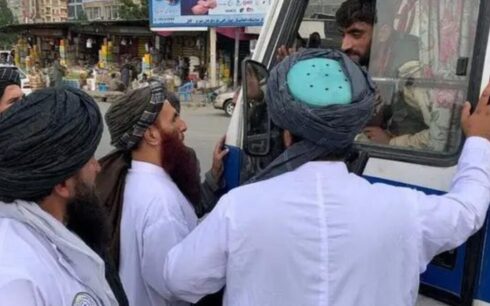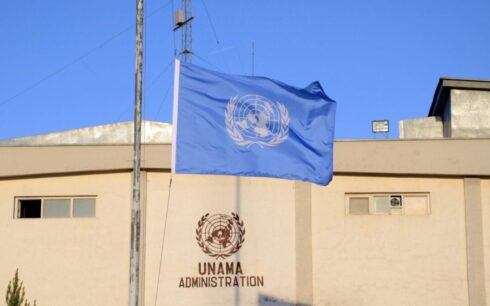KABUL — Taliban is promoting a positive image of the third round of the Doha meetings on Afghanistan, despite criticism over the absence of discussions on human and civil rights.
Zabiullah Mujahid, the Taliban spokesperson who led the delegation at the Doha meeting, has been actively engaging with the media to highlight what he describes as the meeting’s success. Within a week of returning from Doha, Mujahid held a press conference, appeared on Taliban-controlled RTA, and gave interviews to two domestic private media outlets.
The Taliban’s push to portray the Doha talks favorably comes amid scrutiny of its agendas. Notably, issues of human and civil rights were absent from the discussions. Nevertheless, a senior Taliban diplomat, Zaker Jalali, dismissed the second round of the Doha meeting, held without Taliban participation, as “unimportant.”
Mujahid’s recent media engagements underscore the Taliban’s efforts to frame the third round of negotiations as a political victory. He held a press conference at the Government Media and Information Center (GMIC), currently operated by the Taliban, marking his first major media event since November 2022. Mujahid also appeared on TOLOnews and Ariana News, two private Afghan TV channels, to discuss the Doha meeting in detail. Additionally, he participated in a special debate broadcast by RTA.
Amu’s review indicates that the Taliban is aiming to project a positive image of the third Doha meeting while downplaying the significance of the sessions involving Afghan women, civil society representatives, and special envoys.
Jalali, a senior diplomat at the Taliban-run foreign ministry, took to X (formerly Twitter) during the second round of Doha talks to dismiss the session’s importance due to the Taliban’s absence. “Now that the Emirate [Taliban] has decided not to participate due to significant reasons, it has not lost anything… but the [second round of Doha negotiations] has lost its importance,” he wrote.
The Taliban’s media strategy raises questions about its broader priorities and intentions. Jelani Zwak, former director of Kabul News TV, stated, “When they [Taliban officials] organize press activities and go to the media, the main and fundamental purpose is to impose the ruling group’s [Taliban’s] narrative on the people, not to answer people’s questions.”
Mujahid, considered one of the closest figures to the Taliban’s reclusive leader Hibatullah Akhundzada, has relocated his office to Kandahar since April 2022, aligning with the central Taliban leadership.
The GMIC, which used to host spokespeople from the presidential palace and various government institutions during the previous administration, now serves as a platform for the Taliban. “In this government [Taliban], we cannot ask questions; our sisters and daughters can’t go to school, and they don’t answer our questions,” a Kabul resident expressed, highlighting public frustration.
Despite the ongoing challenges, Mujahid continues to assert that the responsibility now lies with the United Nations, maintaining a positive narrative about the Doha meetings. However, the Taliban’s acting foreign minister, Amir Khan Muttaqi, has remained notably silent on the matter, raising further questions about the coherence of the Taliban’s messaging.





